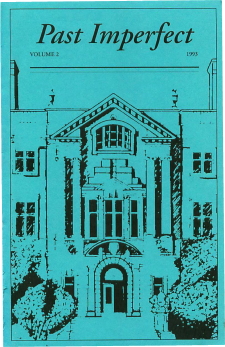About Past Imperfect
Past Imperfect is a peer-reviewed graduate student journal based out of the Department of History & Classics at the University of Alberta. We are currently welcoming submissions, in French or in English, from graduate students in all areas of History and Classics for publication in its twenty-first annual edition. This open access journal provides an opportunity for developing scholars to gain experience with peer-reviewed academic publishing.
Past Imperfect welcomes original research articles and book reviews covering a broad range of both time and geography. The journal especially encourages the submission of revised term papers, conference presentations, or thesis chapters. Articles that appear in Past Imperfect are abstracted in “America: History and Life” and “Historical Abstracts.”



